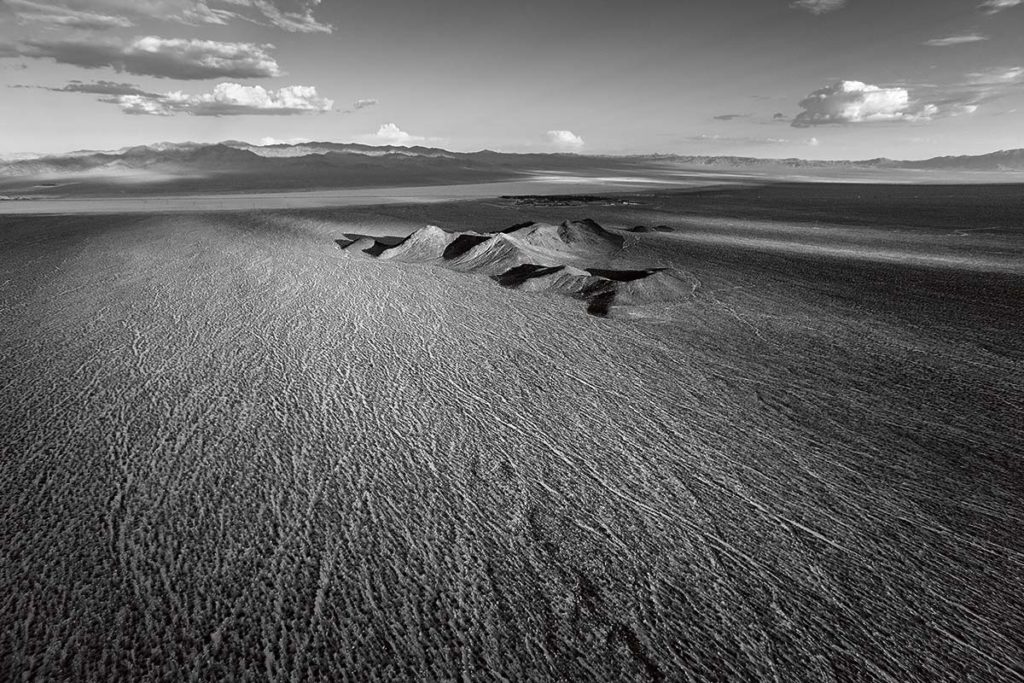
A flight east from Los Angeles will usually cross, miles above at a cool altitude, the Mojave Desert. From on high, its dusty, flaky expanse looks as if every ounce of water has been leeched out, leaving behind dry, emptied rivulets.
Rubén Martínez, holder of the Fletcher Jones Chair in Literature and Writing and author of “Desert America,” once described the Mojave Desert as a place “where people from L.A. — in trouble with the law, their lovers, their creditors, themselves — go to hide out, lick their wounds, end the affair, bury the body.” It’s a dark description of an arid land of burning, baking sunlight that complements the thick, choking, nighttime air of L.A. noir fiction.
Martínez and Douglas Christie, professor of theological studies who wrote “The Blue Sapphire of the Mind,” teach a class called “Into the Desert” that examines the Mojave through historical, political, ecological and spiritual lenses. Martínez writes often about borders and people in the Southwest; Christie studies early Christian monastics who sought wisdom in the Egyptian desert. Their reading list is an eclectic sojourn through meditations from Gregory of Nyssa to Meister Eckhart, Thomas Merton, Carey McWilliams, Mike Davis and Leslie Marmon Silko. The course highlight is an expedition from Westchester’s wetlands, herons and fog to the Mojave’s rolling hills of caked dirt — seeming opposites, but really, a gradual terramorphing that joins watershed to desert.
Poet Joseph Ross ’80, author of “Gospel of Dust,” values the desert because it offers a perspective that is “brutal but real … [where] you can see and feel the distinction between necessities and extras.” We need the “vast emptiness, silence and solitude” of the desert, says Christie, where “we rediscover who we are — in ourselves, in our relationships, in the world.”
Matthew, Mark and Luke describe a journey of discovery when Jesus receives an anointing — a commissioning, perhaps — from the Baptizer, a man of the desert who dresses in camel hair and subsists on grasshoppers. Immediately afterward, Jesus ventures into the desert, where he faces the worldliest of temptations: tests of sustenance, immortality and power. It’s a brutal reality he confronts. And when he returns, Jesus doesn’t leave the experience behind. He brings with him what he has learned about himself.
Joseph Wakelee-Lynch is editor LMU Magazine. He is also host of “Off Press,” the podcast of LMU Magazine. You can find other writings of his at his Editor’s Blog. Follow him on Twitter @jwlmageditor.
